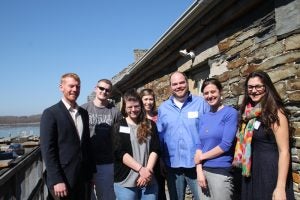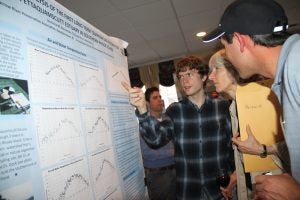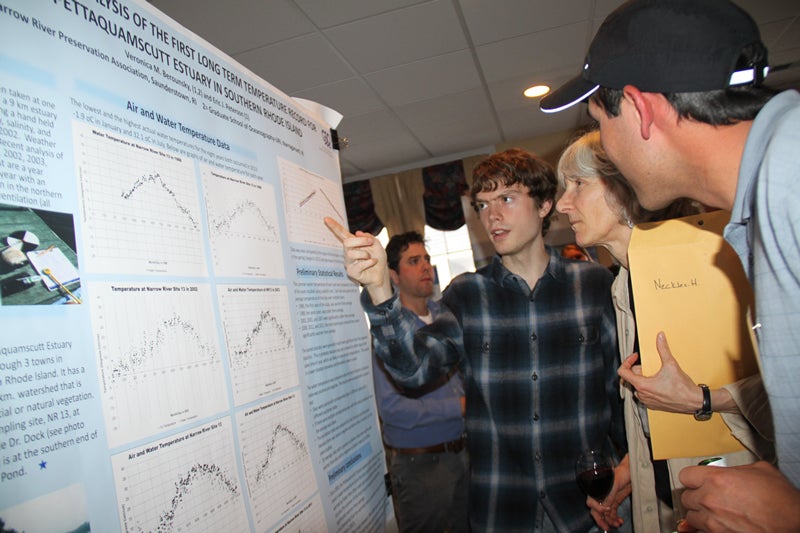Courtney Schmidt, NEERS Treasurer and Staff Scientist, Narragansett Bay Estuary Program–NEIWPCC
In the face of climate change, we often hear that coastal resiliency is key. While the concept of coastal resiliency¬–the ability of a community or habitat to bounce back after a hazardous event¬–is fairly well understood, how do we actually ensure that we are making decisions that promote resiliency?

We conduct research and look to forward-thinking resource managers to provide insight as to the decisions we should be making about our coasts.
In mid-April, over a hundred and fifty students and researchers descended upon Bristol, Rhode Island, to present results on estuarine and coastal research, to discuss management strategies to promote ecosystem health and functioning, and to network with colleagues and counterparts from across New England.
The bi-annual meeting of the New England Estuarine Research Society (NEERS) is an event I have attended for years, as both a student at the Graduate School of Oceanography and now as treasurer of NEERS.

Serving as a NEERS officer was a different beast than being an attendee, but with the teamwork of the NEERS executive committee and support of generous donors including the Coastal Institute at URI, we once again had a successful meeting.
We kicked off the event with a special symposium on emerging issues and novel technologies in coastal ecosystem science. We heard experts discuss how scientists can (and should) interact with the press, the benefits of open data, and how science influences decision making.
Friday and Saturday morning was action-packed with presentations and posters on topics ranging from precise measurements of gas emissions from salt marshes to determine how they contribute to climate change to large-scale coastal restoration projects that employ excavators in order to improve coastal resilience.
Scientific conferences are valuable events to get researchers out of their labs or the field, provide an opportunity to join in thought-provoking discussions that spur future research ideas, and make sure the science we conduct effectively informs sound management decisions to promote coastal resiliency.
NEERS has a long history of being student friendly, but this year surpassed expectations by providing $1300 in student travel awards made possible by our co-host, The Coastal Society, and our sponsors led by the Coastal Institute, the Coastal and Estuarine Research Federation, the Graduate School of Oceanography, and the Connecticut Institute for Resilience and Climate Adaptation. Training the next generation of researchers and managers is important, and the significance is not lost on the best and brightest in the field:
“I was presenting at the meeting this past weekend and the travel award really made ends meet for me to enjoy each day of the meeting and see all of the great presentations! While I have attended NEERS in the past, the travel award really made it possible for me to attend all three days of the meeting in beautiful Bristol, RI.”
–Rachel Perry, MS Student of Biological Oceanography, University of Connecticut
“[T]hank you for providing the travel award that allowed me to attend the recent New England Estuarine Research Society meeting in Bristol, RI. Attending and presenting at NEERs was a tremendous experience. Not only do I get to hone my presentation skills but I also get to intermingle with local scientific leaders in my field. I hope to continue to attend NEERs meetings well into the future.”
–Tim Maguire, Graduate Student, Boston University
With another NEERS meeting in the books, I look forward to new collaborations, seeing many of the ideas presented come to fruition, and applying lessons learned in Bristol to coastal resiliency decisions.
Check out the NEERS website at http://www.neers.org for more information on the organization and to view the program and abstracts from the conference.

